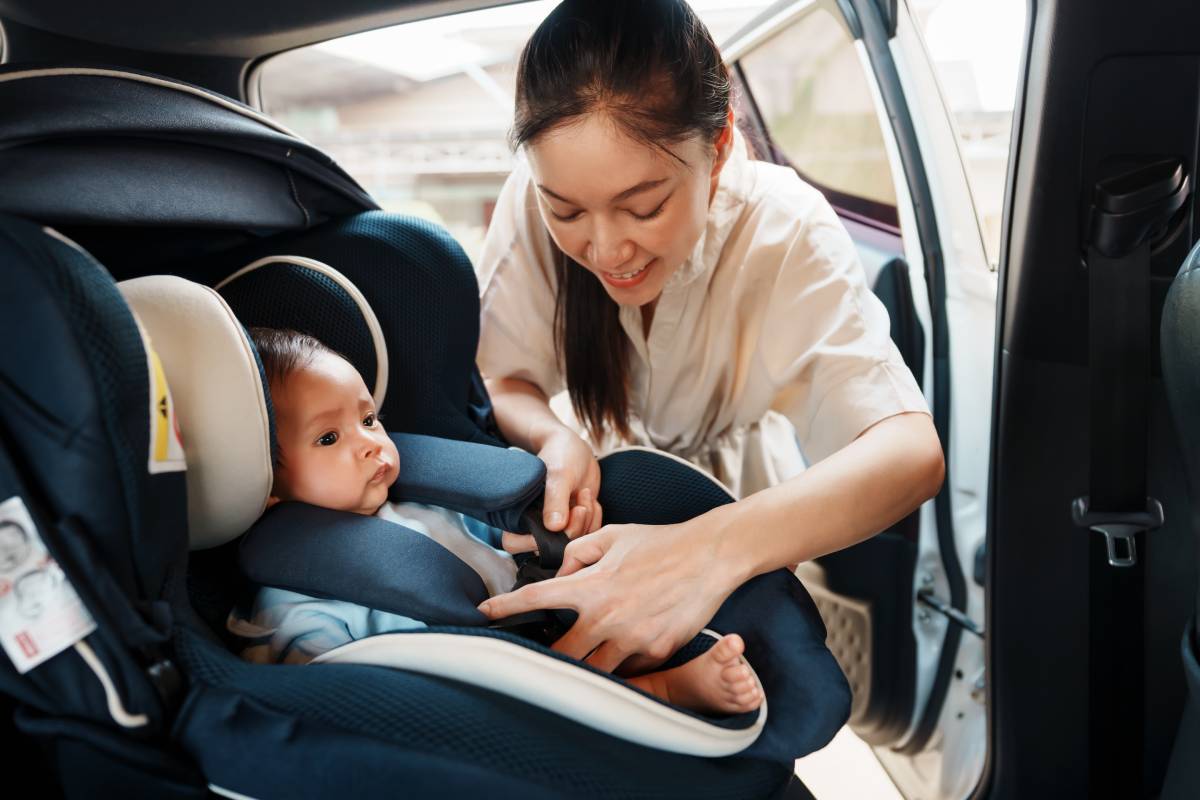 Bringing a baby into the world is an incredible experience, but it also comes with many changes to your body. After giving birth, it’s important to take the necessary time to recover. While you may be eager to return to your normal activities, like driving, swimming, or enjoying a dip in the pool, you should allow your body to heal properly to avoid complications. At Centre OB/GYN in Raleigh, NC, we guide new mothers through the postpartum recovery process and help them understand when it’s safe to resume these activities.
Bringing a baby into the world is an incredible experience, but it also comes with many changes to your body. After giving birth, it’s important to take the necessary time to recover. While you may be eager to return to your normal activities, like driving, swimming, or enjoying a dip in the pool, you should allow your body to heal properly to avoid complications. At Centre OB/GYN in Raleigh, NC, we guide new mothers through the postpartum recovery process and help them understand when it’s safe to resume these activities.
When Can You Drive Postpartum?
After a vaginal delivery, many women can resume driving once they feel comfortable and can safely operate a vehicle. Typically, this can happen about two weeks after delivery, but it varies depending on your healing and individual situation. If you had a C-section or any complications during birth, it’s recommended to wait longer—usually around four to six weeks. Before you get behind the wheel, make sure you are:
- Free of pain that might distract you while driving.
- Capable of reacting quickly in case of an emergency, such as hitting the brakes.
- Not taking any medications that can impair your ability to drive safely.
Always consult your doctor before resuming driving to ensure you are ready.
When Can You Go Swimming Postpartum?
Swimming is a great form of low-impact exercise, but new mothers should hold off until they have completely healed from childbirth. For both vaginal and C-section deliveries, doctors typically advise waiting at least four to six weeks postpartum before swimming. This waiting period helps ensure that:
- Your vaginal bleeding (lochia) has stopped, which usually lasts around 4 weeks but can continue for 6 weeks or longer.
- Any stitches or incisions have healed fully, reducing the risk of infection.
- Your pelvic muscles have had time to regain strength.
Swimming before your body is fully healed could increase the risk of infection, particularly if you had tears or required stitches. It’s always best to get clearance from your doctor before heading back to the pool.
When Can You Use a Pool Postpartum?
Similar to swimming, you should avoid using pools and hot tubs for the first four to six weeks postpartum. Immersing yourself in water, whether it’s a public pool or your own, can introduce bacteria to your healing body, increasing the risk of infection. Even if you’re not planning on swimming, being submerged in a pool can still carry the same risks.
Once you’ve been cleared by your doctor and your vaginal bleeding has stopped, you can begin to enjoy pools again as part of your relaxation or exercise routine.
Taking Care of Yourself Postpartum
The postpartum period is a time to rest, recover, and bond with your new baby. While it’s tempting to return to your normal activities quickly, allowing your body the time it needs to heal will help prevent complications. Here are a few general tips to follow in the weeks after giving birth:
- Rest and Listen to Your Body: Recovery is unique to each person. Don’t rush, and listen to your body’s signals.
- Stay Hydrated and Eat Nutritious Foods: Proper hydration and nutrition can aid in recovery.
- Start with Gentle Exercise: Once you’ve been cleared by your doctor, start with light activities, such as walking, before engaging in more intense exercise or swimming.
Postpartum Care at Centre OB/GYN in Raleigh, NC
At Centre OB/GYN in Raleigh, NC, we are dedicated to providing compassionate and comprehensive care throughout your postpartum journey. Our team will guide you through the recovery process and offer personalized advice on when it’s safe to resume your usual activities, including driving and swimming. If you have any questions or concerns about your postpartum recovery, don’t hesitate to reach out to us.
By taking things slow and allowing your body to heal, you can ensure a smoother postpartum experience. Contact us today to schedule your postpartum check-up and get tailored advice on when you can safely return to your favorite activities. https://centreobgyn.com/raleigh/
Further Reading: https://www.thebump.com/a/after-birth-when-will-i-be-able-to
Go back
